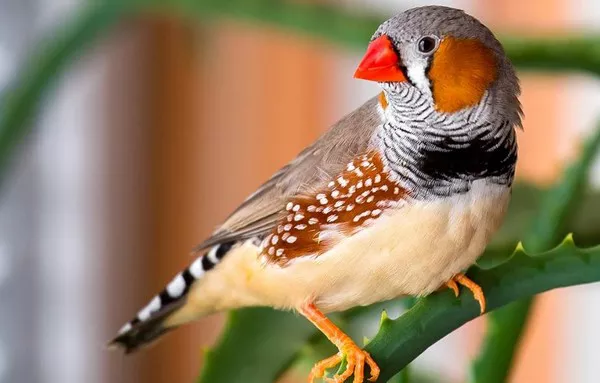Tortoiseshell cats, often affectionately called “torties,” are some of the most captivating cats in the feline world, known for their beautiful, unique coat patterns. Their coats come in a rich variety of colors that blend shades of black, orange, and cream, making each tortie look different from the other. However, when it comes to the behavior and personality of tortoiseshell cats, many pet owners wonder if these stunning felines meow a lot.
In this article, we will dive into the world of tortoiseshell cats, exploring their unique traits, the factors that affect their vocalization habits, and how they compare to other cat breeds. Additionally, we will discuss whether tortoiseshell cats tend to meow more than other cats, what their meowing means, and how to interpret their vocalizations.
What Makes Tortoiseshell Cats Special?
Before we explore the specific question of whether tortoiseshell cats meow a lot, let’s first understand what makes these cats so special. Tortoiseshell cats are not a specific breed but rather a color pattern found in various breeds. The term “tortoiseshell” refers to the mix of orange, black, and sometimes cream or gold fur that gives them their unique and striking appearance.
Tortoiseshell cats come in two main coat patterns:
Classic Tortoiseshell – This pattern features a mix of orange and black fur, often in a mottled or patchy arrangement. You’ll see a blending of colors in irregular patches across the cat’s body.
Dilute Tortoiseshell – A softer version of the classic tortoiseshell, this pattern replaces black with shades of gray or blue, creating a gentler, pastel appearance.
Tortoiseshell Cats’ Personality Traits
While tortoiseshell cats are known for their distinct look, they are also widely recognized for their unique personalities. Many cat enthusiasts and owners note that torties tend to exhibit strong and independent personalities. It’s important to remember, however, that every cat is an individual, so not all tortoiseshell cats will exhibit the same traits. Nevertheless, there are some common personality features that many tortoiseshell cats share:
Strong-Willed and Independent: Tortoiseshell cats are often described as having a “sassy” or “feisty” attitude. They are known for being confident and independent, with a tendency to do what they want when they want. This independent nature makes them well-suited for owners who understand their boundaries and allow them to express their personalities.
Affectionate but Selective: While tortoiseshell cats may have a more independent side, they can also be very affectionate with the people they trust. They tend to form strong bonds with their owners and may seek attention, cuddles, and affection on their terms. This means that while they can be loving, they may not always be as eager for constant petting or attention as other cats might be.
Energetic and Playful: Many tortoiseshell cats are active and playful. They love to chase toys, explore their environment, and engage in interactive play. They are often curious and enjoy figuring out new things, which can keep them engaged and mentally stimulated.
Sometimes Vocal: Tortoiseshell cats can be quite vocal, though this is not a universal trait. Some torties are known to “talk” to their owners, using a variety of vocalizations to express themselves. They might meow, chirp, or even purr to communicate their feelings or needs.
The Meow of a Tortoiseshell Cat: A Common Trait?
So, do tortoiseshell cats meow a lot? The short answer is: it depends. While there is no scientific evidence to suggest that tortoiseshell cats meow more than other cats, their personalities and behavior can play a significant role in how often they vocalize.
Some tortoiseshell cats are more vocal than others due to their playful, energetic nature. They may meow as a way of communicating with their owners or expressing excitement during playtime. Some may meow when they want attention, food, or to be let outside. Others may meow as a form of greeting when their owners come home.
That said, it’s essential to recognize that tortoiseshell cats are not a breed with a fixed vocalization pattern. Their meowing habits can vary significantly depending on their individual temperament and how they were raised. A tortie’s level of meowing is influenced by various factors, including genetics, early socialization, and environment.
What Affects How Much a Tortoiseshell Cat Meows?
While tortoiseshell cats may be generally independent and strong-willed, their meowing habits can be shaped by various environmental and genetic factors. Let’s look at some of the most important elements that can influence how often a tortoiseshell cat meows.
1. Personality and Temperament
As mentioned earlier, tortoiseshell cats are often known for their strong and independent personalities. However, some may be more vocal than others, depending on their unique temperament. For example, some tortoiseshell cats may be naturally more talkative, while others may prefer to remain quiet or communicate with body language rather than vocalizations.
A tortoiseshell cat that is more playful and curious may meow more often as they try to engage their owners during playtime or when they want attention. Conversely, a more reserved tortoiseshell cat might not meow as much, preferring to observe the world around them in silence.
2. Breed Influence
Tortoiseshell cats are not a breed themselves, but the color pattern can appear in many different breeds. For example, tortoiseshell markings are often found in breeds like the Domestic Shorthair, Maine Coon, Persian, and British Shorthair, among others. The vocalization habits of tortoiseshell cats may therefore vary based on the breed they belong to.
For instance, some breeds, like the Siamese, are known for being particularly vocal. If your tortoiseshell cat is part Siamese, you might experience more meowing than if they belong to a quieter breed like the British Shorthair.
3. Socialization and Environment
The environment in which a tortoiseshell cat is raised can also impact how often they meow. Kittens that are well-socialized and exposed to various people, sounds, and situations tend to develop better communication skills, including meowing. A well-socialized tortie may meow to communicate with humans, while one that has not had as much exposure to socialization may be more reserved.
Additionally, cats that live in busy or stimulating environments may meow more often as they react to the sounds and activities around them. A tortoiseshell cat in a quiet, low-stress home might be less vocal compared to one in a more chaotic household.
4. Health and Comfort
Sometimes, a tortoiseshell cat’s meowing is a sign of something other than communication or excitement. Cats meow to express discomfort or pain, so it’s essential to pay attention to the context in which they meow. If your tortoiseshell cat suddenly starts meowing excessively or appears to be in distress, it could indicate a health issue or injury that needs attention. Cats can also meow if they feel anxious or uncomfortable in their environment.
5. Age and Life Stage
The age of a tortoiseshell cat can influence its vocalization habits. Kittens tend to meow more frequently than adult cats because they are still learning to communicate and express their needs. As they grow older, many cats, including tortoiseshells, may meow less frequently as they become more confident in their communication. However, some cats may continue to be quite vocal throughout their lives, especially if they are highly social and active.
Interpreting Your Tortoiseshell Cat’s Meowing
Understanding why your tortoiseshell cat is meowing is key to interpreting its behavior. Meowing is a form of communication, and cats meow for various reasons. Here are some of the most common reasons why tortoiseshell cats may meow:
Hunger or Thirst: Cats often meow to let their owners know they are hungry or thirsty. If your tortoiseshell cat is meowing around mealtime, they are likely trying to get your attention for food or water.
Attention: Tortoiseshell cats may meow when they want attention, affection, or playtime. If your tortie is seeking interaction, they may vocalize to let you know they want to engage with you.
Discomfort or Pain: A cat in pain or discomfort may meow as a way of signaling distress. If the meowing is accompanied by other signs of illness, such as lethargy, loss of appetite, or changes in behavior, it’s essential to consult a veterinarian.
Boredom or Loneliness: Cats that are left alone for long periods may meow due to boredom or loneliness. If your tortoiseshell cat seems to meow more when you are away, it could be a sign they are missing your company.
Greeting: Cats sometimes meow as a way to greet their owners when they return home. If your tortoiseshell cat meows when you walk through the door, they may simply be saying “hello.”
How to Manage Excessive Meowing
If you find that your tortoiseshell cat is meowing more than you would like, it’s important to assess the cause of the behavior. Here are some tips for managing excessive meowing:
Provide Plenty of Stimulation: Ensure your cat has enough toys, climbing structures, and interactive playtime to keep them entertained and mentally stimulated.
Establish a Routine: Cats are creatures of habit, and establishing a regular feeding and playtime routine can help reduce meowing caused by hunger or boredom.
Address Health Concerns: If your tortoiseshell cat’s meowing seems excessive or abnormal, take them to the vet to rule out any health problems.
Give Attention on Your Terms: If your tortoiseshell cat is meowing for attention, try to give them attention in a controlled manner, avoiding reinforcing excessive meowing by immediately responding.
Conclusion
Tortoiseshell cats, like all felines, have unique personalities that influence their vocalization habits. While some torties may meow a lot, others are more reserved, and their vocalization levels depend on factors such as breed, temperament, socialization, and environment. By understanding your tortoiseshell cat’s individual behavior and needs, you can better interpret their meows and provide the care and attention they require.
If you’re a proud tortoiseshell cat owner, remember that meowing is just one of the many ways your feline companion communicates with you. By paying attention to the context of their meowing, you can strengthen your bond with your tortie and ensure their well-being.
Related Topics:




















